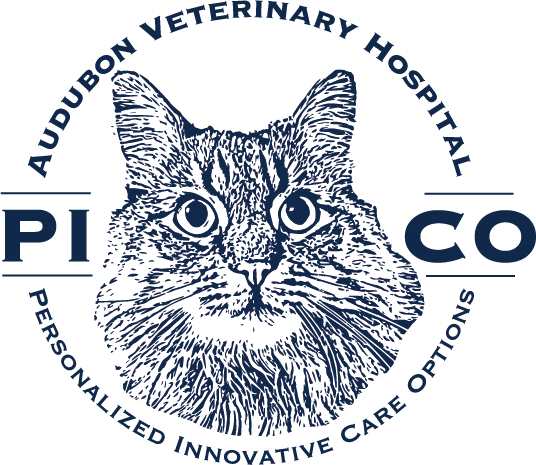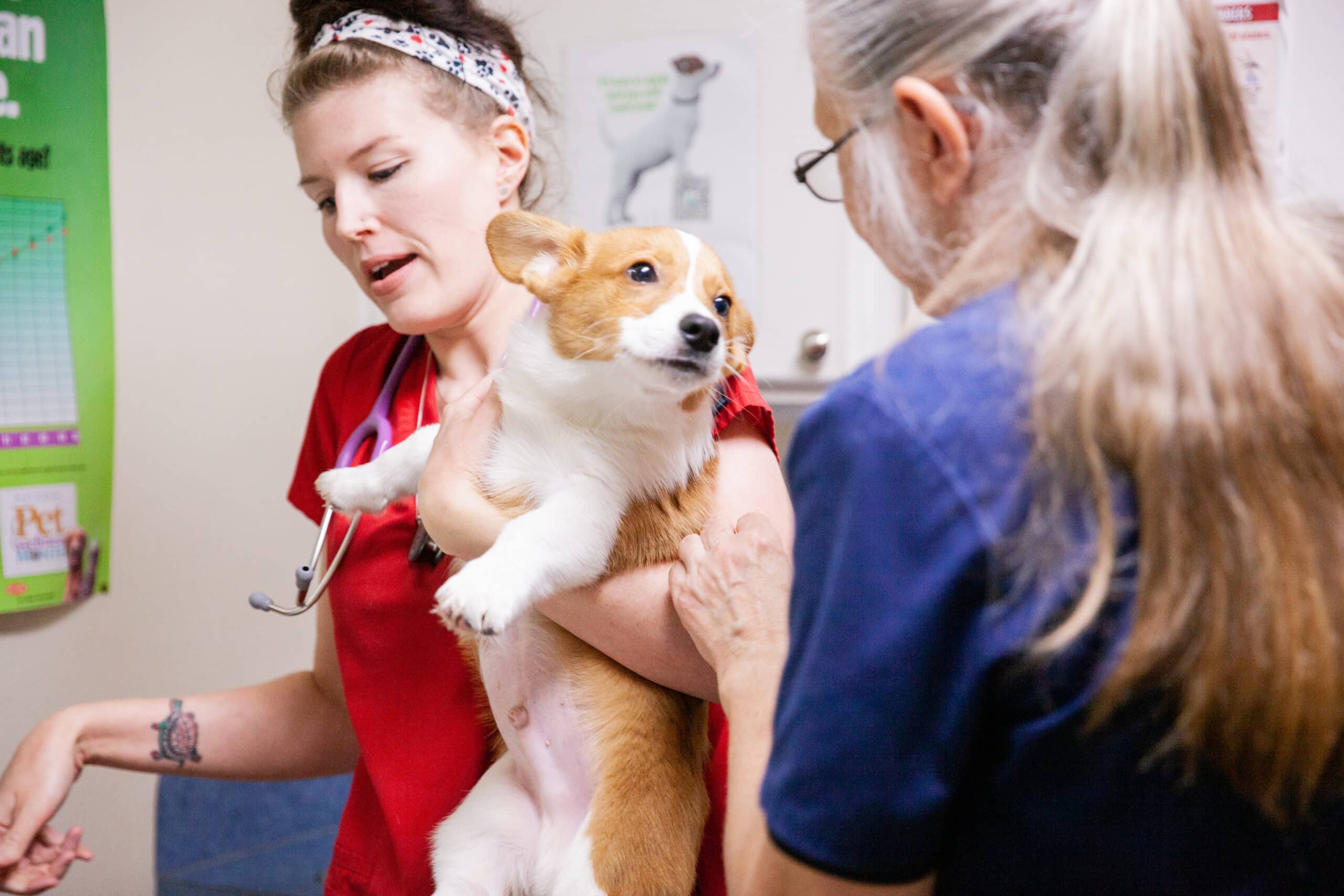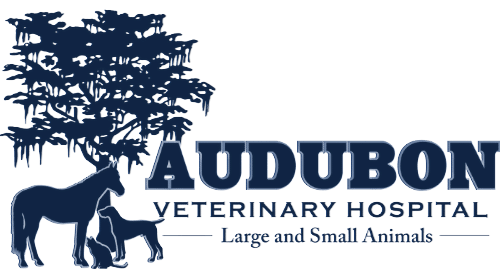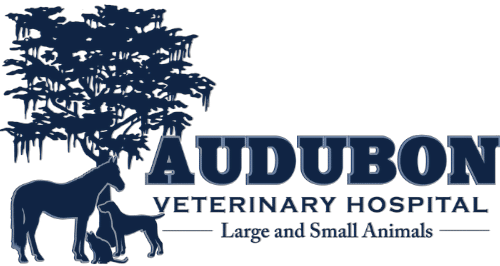Wellness
Wellness
At Audubon Veterinary Hospital, we understand that the needs of your furry friend are different from other pets and will change as they grow. We have established protocols for each life stage of your pet and tailor them to meet the specific needs of each individual animal.

P.I.C.O. Program
Personalized Innovative Care Options.
At Audubon Veterinary Hospital we believe our clients want to provide the best of care for their animal companions. By participating in our P.I.C.O. (Personalized Innovative Care Options) Program, pet owners can fulfill their pet’s preventive veterinary care needs in an affordable way.
To learn about how to make your pet’s wellness care more affordable, please see our P.I.C.O. Program.
Young Pets
Neonatal and juvenile animals have unique health and wellness needs. We understand this and will help you provide the most appropriate care for your new pet at Audubon Veterinary Hospital. Vaccinations must be administered not only for the life and health of your pet, but also to ensure your pet is compliant with the laws according to human public health guidelines. Rabies vaccination, for example, is required for all dogs and cats over the age of twelve weeks.
Additionally, our doctors recommend spaying or neutering all pets not used for breeding purposes. Not only does early pet sterilization prevent unwanted puppy or kitten litters and help the problem of overcrowding in animal shelters, but they also provide numerous health benefits for your pet as it ages.
Internal and external parasite prevention is also paramount in an appropriate health maintenance plan for your pet. There are many products on the market, each with different advantages and disadvantages. We will work with you to determine those products that best fit yours and your pet’s needs.
Other subjects we will discuss with you include nutritional needs, dental care, microchipping, good animal citizenship and general husbandry.
Finally, we use screening bloodwork to identify any underlying issues your young pet may have and to provide a baseline for us to compare to as your pet ages. At Audubon Veterinary Hospital we believe preventative medicine is the key to a long happy life for your pet.
To learn about how to make your pet’s wellness care more affordable, please see our P.I.C.O. Program
Junior and Adult Pets
Once they are through the first year of their lives, the needs of your pet begin to change. Physiologically, their metabolisms change and so do their nutritional needs.
Dental disease begins to become an increasing concern also. Pets as young as one year of age can begin accumulating tartar on their teeth and developing periodontal disease. Certain breeds are more prone to these problems than others so counseling with us will help you to identify any issues as they arise before they become a significant problem for your pet.
Internal and external parasite control are also critical at this stage of your pet’s life. It is extremely important that these medications be administered at the proper intervals and at the correct dose. Frequent monitoring of your pet’s weight is necessary to confirm proper prescribing of these medications.
Screening Blood Work continues to play an important role in the health of young adult animals, as these values can help our doctors discover possible issues prior to the onset of disease.
To learn about how to make your pet’s wellness care more affordable, please see our P.I.C.O. Program
Geriatric Wellness Concerns
Pets age faster than people. Many factors influence the rate your pet ages including breed, adult size, nutrition, and lifestyle. In general, we consider pets 6 to 7 years of age as fully mature and becoming geriatric. After this age is when we concern ourselves with increased risk of chronic disease. Along with our routine blood chemistry screening we will add additional tests to evaluate organ function. At this stage, your pet may need additional supplements, nutrition changes, and other therapeutic medications. Certain breeds have specific predispositions to diseases so we will tailor their screening tests appropriately.
The general pet population is living longer because of improved early screening and veterinary care. While a good geriatric wellness program will help extend the length and quality of your pets life, it is important to note that care of the elderly pet starts at birth and is a life-long endeavor.
To learn about how to make your pet’s wellness care more affordable, please see our P.I.C.O. Program
Specific Concerns for the Geriatric Pet
Parasite prevention, diet, vaccines, exercise, and weight should be considered from birth. Finally, it is important to know that many changes you notice in your pet that you attribute to “old age” may in fact be preventable or reversible. For example, an arthritic animal may become less active but with proper diet, exercise and treatment may begin to “act like a puppy or kitten” again. We encourage you to read the following information on our comprehensive geriatric wellness program and let us know if you have any questions or are interested in scheduling these tests for your pet.
Diseases are more easily treated if they are detected early in the disease process before significant organ function has been lost. For example, an increased blood glucose level can indicate the beginning of diabetes. If detected early, the dog / cat can usually be treated with a simple diet change or insulin therapy. However, if diabetes is allowed to continue unmanaged serious health consequences arise including kidney failure, blindness, seizures, and even death. Early detection of disease is a key part in maintaining the health of your pet.
- More frequent and more extensive physical exams can help detect changes in your pet’s physical condition. Enlarged lymph nodes, skin and abdominal masses, heart murmurs, and respiratory difficulty are all things that can be detected on physical exams and are all things that need early attention. We will also discuss any preventative measures that can be taken for common diseases.
- Laboratory tests on your pet’s blood, urine, and feces can often reveal a problem before your pet begins to show outward signs of disease. Our routine “geriatric profile” screens for liver function, kidney function, diabetes, infection, anemia, thyroid function, dehydration, intestinal parasites, and other signs of metabolic disease.
- Your own careful observations of your pet at home can also provide clues to his / her overall health. Changes in activity level, attitude, appetite, water intake, urination, bowel movements, or body weight can all be important.
Dental care becomes increasingly important as your pet ages. When routine dental care is neglected, gingivitis, painful chewing, tooth loss, periodontal disease and even heart disease can all become serious problems. 70% of older cats and 80% of older dogs have some form of dental disease. Routine dental care has been shown to increase the length of your pet’s life by minimizing the bacteria that are the cause of these serious problems.
Because nutritional needs change with age, feeding your dog or cat an appropriate diet also becomes more critical as he/she gets older. Age, body condition, weight, degenerative joint disease, and organ insufficiencies can all influence his/her dietary needs. There are many excellent senior diets available as well as prescription diets that can be used to provide the exact nutrition that your pet needs.
Geriatric wellness programs are typically tailored to the individual. Factors such as your pet’s age, previous illness, overall health status, medications your pet may be taking, and your degree of commitment to your pet’s wellness influence the frequency of visits and the type of screening tests run. Please let us know if you are interested in implementing a geriatric health program for your senior pet.
To learn about how to make your pet’s wellness care more affordable, please see our P.I.C.O. Program


